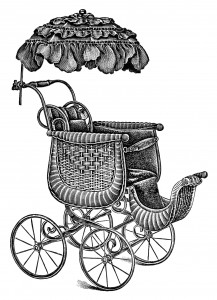Why Legally Married Same Sex Couples Should Adopt Their Children
This week we got one of our favorite calls — a couple looking for assistance with their child’s adoption.
Prior to marriage equality in Connecticut, second parent adoption was critical for same sex couples because it provided a route to legal recognition of parenthood for them, even though they were unable to marry. Now that same sex couples are able to marry (in Connecticut and sixteen other states) why should married couples who have a child born into the marriage still go through the adoption process for that child?
In this context, the term “second parent adoption,” also known as a co-parent adoption, refers to a legal process in which a child who is the biological child of one member of a couple is adopted either through a joint petition by both members of the couple (even though one of them is already the child’s birth or adoptive parent) or through an individual petition by the member of the couple who is not yet the child’s parent. After the adoption, the child has two legal parents.
A “stepparent adoption” is analogous to a second parent adoption, except that it requires that the couple be married.
As the Human Rights Campaign explains:
A second-parent adoption allows a second parent to adopt a child without the “first parent” losing any parental rights. In this way, the child comes to have two legal parents. It also typically grants adoptive parents the same rights as biological parents in custody and visitation matters.
Not all states allow people to petition for second parent adoptions, and in fact it is a fairly recent development even in New England. In 1993, via court decision, Vermont became the first New England state to allow second parent adoptions. Connecticut, however, was the first state to allow second parent adoption through legislative action. In 2000, the Connecticut legislature effectively overruled In re Adoption of Baby Z and created a statutory mechanism whereby a legal parent can agree to his or her partner’s adoption of a child as someone “who shares parental responsibility for the child.”
(The court in In re Adoption of Baby Z denied a lesbian couple’s joint petition to adopt the biological child of one of the women based on Connecticut’s previously existing adoption statutes.)
Additionally, married Connecticut couples may use stepparent adoptions to secure the legal relationship between the second parent and a child born or adopted before the parents entered into a marriage.
But why do we recommend that legally married couples in a state that recognizes their union still complete a stepparent adoption for children born into the marriage?
Because, while a child born to a married same-sex couple in Connecticut is presumed to be the child of both members of the couple and both should be listed as parents on the birth certificate, another state might not respect that presumption if the couple moves or if they separate or divorce and one party relocates.
In its publication, Legal Recognition of LGBT Families, the National Center for Lesbian Rights writes:
In a number of states, a person who is not a legal parent does not have any legal decisionmaking authority over a child, even if that person lives with the child and functions as the child’s parent. For example, in some states, a person who is not a legal parent may not be able to consent to medical care for the child or even have the authority to approve things like school field trips. In addition, a non-legal parent may have no rights to custody or even visitation with a child should something happen to the legal parent, and may have no ability to claim the child as a dependent for health insurance. In the absence of a will stating otherwise, a child generally has no right to inherit from a person who is not a legal parent or relative.
Unfortunately, the Windsor decision in which the United States Supreme Court found section 3 of DOMA unconstitutional does not change this. A remaining section of DOMA states that that each state can set its marriage rules for itself, and that no state has to recognize another state’s marriages that offend the first state’s public policy. These concepts, though codified in DOMA, are really a reiteration of long standing legal principles – states have traditionally been able to set their own rules about who can marry, and have not had to recognize each other’s marriages. (Thanks to Loving v. Virginia, this is no longer is true for interracial marriages.)
Adoptions, however, are court orders, which all states are required to recognize under the Full Faith and Credit Clause of the United States Constitution. As a result, an adoption by an “LGBT parent should be recognized in every state, even if that state’s own laws would not have allowed the adoption to take place.”
Therefore, in order to make both parents’ parental status portable from state to state and from country to country, even post-Windsor, Connecticut married same sex parents should strongly consider filing probate court petitions for stepparent adoptions.



1 Comment
the connecticut lgbt law project » Life and Estate Planning Remains Critical for Same Sex Couples Following Windsor Decision
May 7, 2014[…] with the legal issues facing same sex couples. Even married same sex couples, for example, should consider second parent adoptions of their children. While a child born to a married same-sex couple in Connecticut is presumed to be the child of […]